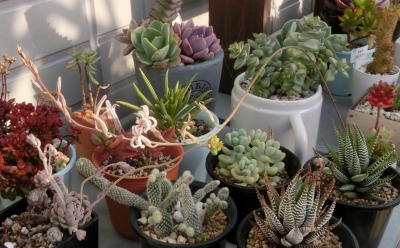Ensuring our own privacy プライバシーの確保を Friday, May 6
●ensure 確保する ←何かを確実にする
This year marks my 30th as a psychiatrist, and among the changes that have taken place since the beginning of my career is the way that patient rooms are set up. There were numerous long-term patients in the psychiatric ward when I was young, and although it might now be hard to believe, many of their rooms were Japanese-style ones.
●set up 建てる ●ward 病棟
今年で精神科医になって30年が経過した。この仕事についた頃から大きく変わったことのひとつが「病室のつくり」だ。私が若かった頃は精神科病棟には長期入院者も多く、信じがたいかもしれないが、和室の病室も少なくなかった。
Six or eight patients would stay in these tatami mat-lined rooms, which were more akin to halls, and where patients seemed to be living communal lifestyles rather than being hospitalized. And, as is a matter of course in such rooms, patients would pull out their futons at night and go to sleep.
●hospitalize 入院させる
6人から8人程度の患者さんが、ちょっとした広間のような畳敷きの部屋で入院というよりは共同生活を送っていた。もちろん、夜になれば自分たちで布団を敷いて眠るのだ。
Making my rounds, patients would sometimes ask me to stay for tea, and so I would do so while watching television with them. That was enjoyable, but patients who were unable to become accustomed to life there would sometimes reveal to me at such moments that they were having an extremely difficult time.
●accustomed to ~慣れて ●reveal 漏らす/rɪvíːl/ ●extremely とても
回診に行くと、「先生、お茶飲んで行って」と言われて出されたお茶を飲み、患者さんたちといっしょにテレビを見てくつろぐこともあった。それはそれで楽しかったが、なれない患者さんは「つらい」と言っていた。
There was absolutely no privacy there, as patients were completely visible to everyone around them -- even when they were lying down to rest or just becoming lost in thought. Indeed, not having one's own personal space is a source of significant stress.
●absolutely まったく ●visible 目に見える ●significant 相当な
プライバシーがまったくなく、横になっていても考えごとをしていてもまわりから丸見えだからだ。「自分のスペースが区切られていない」というのは、相当なストレスなのだ。
Many of these Japanese-style rooms were later replaced by ones equipped with beds, where patients were able to have their own personal space. Nowadays, such areas have become partitioned off using curtains, ensuring even further personal privacy.
●equip 装備する ●partition 仕切る
それから和室の病室の多くはベッドの部屋に変わった。ベッドとそのまわりは個人の空間だ。そして今では、ベッドのあいだはカーテンなどで仕切られ、よりプライバシーが確保されるようになっている。
Right now, numerous individuals remain in emergency shelters in Kumamoto and Oita prefectures. Most of these locations are wide-open spaces such as gymnasiums, and some people are staying there with no sort of partition to separate them from others.
熊本や大分では、いまだに多くの人たちが避難生活を送っている。避難場所のほとんどは体育館などの広い場所で仕切りもない中、寝泊まりしている人たちもいる。
Naturally, such persons are experiencing difficulties with everyday tasks such as changing their clothes, or being unable to fall asleep at night since they have never before experienced sleeping amidst a large number of people.
●amidst ~の中で
当然そのような人たちは「着替えをするのもひと苦労」「大勢の中で寝たことがないのでなかなか眠れない」といった声が出るのも当然だ。
Because this is a time of emergency, people are of course not prone to complaining about small infringements upon their freedom. At the same time, however, living together in a large space together with numerous other individuals is likely something that many people find to be a significant source of stress.
もちろん、いまは非常事態であるから、多少の不自由に文句を言う人はいない。とはいえ、だだっ広い空間の中で大勢がいっしょに暮らすのが、相当のストレスになっている人も多いのではないか。
●prone しがち ●infringement 違反行為 ●individual 人
And yet, while disaster survivors may be able to say things like "I have nothing to eat," they find it harder to voice concerns such as "I'd like to have a partition between myself and the person sleeping next to me."
そうであっても被災者は、「食べ物がないんです」とは言えても、「隣の人とのあいだに仕切りがほしい」とはなかなか言えない。
Once the aftershocks stop, people will return to fix their damaged homes, while others will move into temporary housing facilities. In order to help prevent the stress from their evacuation experience catching up with them at that time, it is necessary for people to make efforts to protect their privacy as much as possible while they remain in the emergency shelters.
●catch up with ~に追いつく
余震がある程度、落ち着いたら、みなそれぞれの家に戻って傷んだところを直したり、仮設住宅に入ったりして生活を続けていくことになる。そのときに避難所でのストレスで心身に不調が出るのを少しでも防ぐためにも、避難所でもできるかぎりプライバシーが守られるよう工夫することが必要だ。
One single divider or paper screen -- anything will do. And for those evacuation centers that do not have such partitioning in place, can the government not provide them with simple panels?
●anything will do. なんでもいい anything is OK. do よい、足りる
一枚のつい立て、紙の間仕切り、なんでもよい。もしまだのところがあれば、国が早急に簡易パネルを配布する、といったことはできないのだろうか。
For disaster survivors taking emergency shelter, it is important to create an atmosphere within which they can relax as much as possible. (By Rika Kayama, psychiatrist)
被災者には、少しでも安心できる環境で避難生活を送ってもらいたい。(香山リカ精神科医)
〇その銀行は海外支店を開設する計画だ。
The bank is planning to set up a branch overseas.
 /english/phrase/26692?m=1
/english/phrase/26692?m=1
〇あなたが入院していたとは知りませんでした。
I didn't know you'd been hospitalized.
 /english/phrase/28566?m=1
/english/phrase/28566?m=1
多肉の花
写真の右下の多肉君から画面の端から端まで花茎が伸びています。少しでも遠くに花を咲かせようとしますね。多肉君はそれで、ものすごく体力を使うと言われています。



日が経って人がだんだん少なくなって、本当に行くところがない人々が残ってからやっと仕切りができるという感じでしょうか。
これは、まったく知りませんでした。ほとんど報道されていませんね。これは良いですね。紙管(サランラップの芯、固い紙で作ったパイプ)で部屋を作り、布で壁(カーテン)を作ります。なんか野戦病院みたいな感じですが、とてもいいですね。やっているんですね。組み立ても簡単ですね。情報ありがとうございます。余談ですが紙管は軽くて丈夫で、意外としられていないんですが脱臭効果もあります。
以前Eテレの「スーパープレゼンテーション」で
出演されたTEDのプレゼンテーションが
取り上げられていた
坂茂(ばんしげる)さんが、
NPOボランタリー・アーキテクト・ネットワークと、
慶応大学SFC坂茂研究室
の皆様と共に、4/23, 24にかけて、避難所に
紙管と布を用いた簡易間仕切りシステムの
設営を行われた、のだそうですが、
全ての避難所で設営されている訳では、
ないでしょうね…。
花は受粉します。人工的に受粉さして、あたらしい多肉を作る人もいます。種類もあると思いますが、子どもできます。小さい子どもがこぼれるようにして、増えます。葉を分離して、乾かして植えると根がでてきます。直植えするとどんどん増えます。そんな画像も後半にアップしたいと思います。
芭蕉さんは本当に芭蕉が好きだったんですね。どこがいいのか?風鈴はわかりません。
屋久島を縦断したことがあります。空港から、すぐに山の方に入りました。すると野生のバナナの木?が一杯ありました。青いバナナの実もありました。ところが、聞くと、これが芭蕉でした。大きく人の背丈ほどの芭蕉で、大きな葉、バナナみたいに実も、バナナとそっくりでした。
ばせを植ゑてまづ憎む荻の二葉哉 芭蕉
風鈴が見た芭蕉と芭蕉が大好きな芭蕉とは同じものなんでしょうかね。
植物が花を咲かせるのは受粉して実をつけて増えていくためでしょうが、多肉植物はどんなふうに増えていくのですか。
当初は体育館に人が入り切れず、体育館の軒下などにも、人があふれていました。ダンボールの仕切りはまったくありませんでした。熊本だけでなく、東京などでも多くの避難所は体育館が指定されています。外国は多くがテント村を作ります。大きな万単位の難民キャンプもあります。避難所、避難計画、避難準備の方法をもっと工夫することが大事だと今回痛烈に思いました。大きな災害のたびに同じ問題が指摘され、同じ光景を見るのは、進歩がありません。
ムグンファ さんの前日5日の日記を書かれているころから日記を書いておりました。ムグンファ さんの方が早起きです。
女性の方が、着替えができないとか当初は言われてが、ずいぶん改善されています。登山家の野口健さんなどが、テントを張る指導をやっておられましたね。体育館の中にもテントを張っておられました。災害の備えに、テントと寝袋や携帯コンロ、食料など登山用品を持っているのは便利だと思いました。風鈴は山歩きをしていましたので、一応持っています。